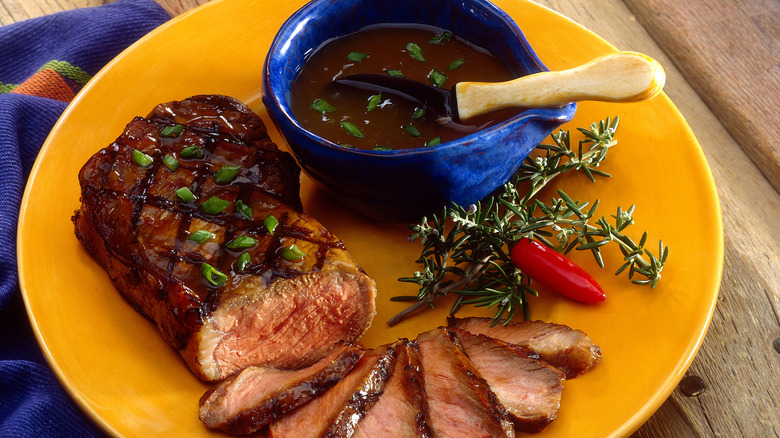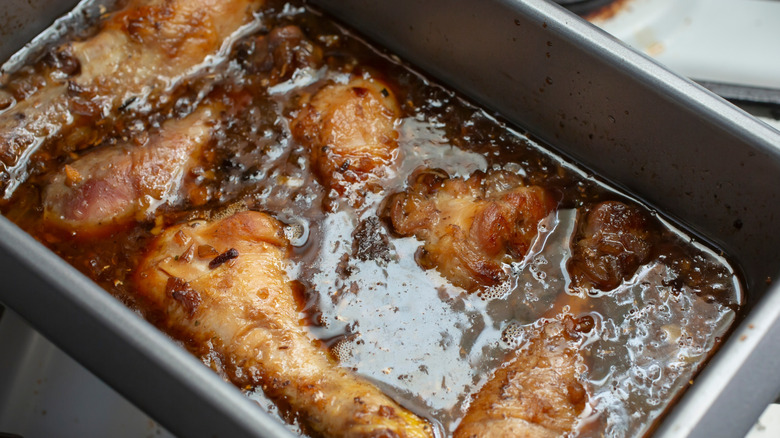Why You Should Marinate Your Meat Before You Freeze It
We may receive a commission on purchases made from links.
Your freezer is a lifesaver — not only can it give new life to food that would otherwise be ready to toss in a day or two, but it can be a useful tool for cooks who like to plan ahead. In addition to freezers being handy for meal prepping, they also assist in getting a fresh meal on the table in no time. By placing chicken, beef, pork, or fish in a marinade, then freezing it for later, you get to skip this time-consuming process when mealtime approaches. That means you can toss your favorite protein straight into the oven for an effortless, flavorful dish.
When you pull meat out of the freezer, it tends to be hard and cold, making it practically impossible for a marinade to stick to the surface. When you freeze your protein in the marinade, the mixture will stick to the meat, and any excess marinade will be securely frozen around the outside. You might even want to freeze the meat in an oven-safe container (like these M MCIRCO Glass Meal Prep Containers from Amazon), allowing you to pop your dish straight into the oven without a second thought. Even if you prefer to thaw your meat before baking (just make sure you're doing it correctly), the meat will sit in the marinade as it defrosts, giving it even more flavor with minimal effort. This way, you can also avoid touching raw meat while trying to prep the rest of your meal.
Some ingredients freeze better than others
Of course, not all ingredients are freezer-friendly. For those that aren't, you may want to incorporate them later in the cooking process. Mayonnaise, which can be used to marinate salmon or chicken to make them juicy, turns rubbery when frozen, resulting in an undesirable texture when reheated. To avoid common mistakes when marinating chicken, use an olive oil-based marinade instead, as these can stand up to the freezer's cold temperatures. Pair your olive oil marinade with fresh rosemary, sage, and thyme — three herbs that also freeze (and reheat) well. A broth-, soy-, or balsamic-based marinade will also pair beautifully with beef, particularly in chuck steak or roast, or when making meals like goulash.
Certain aromatics like peppercorn, garlic, and paprika can change their flavors when frozen. No need to shy away from them when building your marinade, though, as long as you plan to cook your meat within four months or so. Once you enter six-month territory, the dish is still safe to eat, but you might notice the ingredients developing an overbearing flavor. If you're worried about over-marinating your meat by leaving it in the freezer for too long, there's no need. Freezing the meat stops the marinating process, meaning your meat can marinate as it defrosts and bakes.

